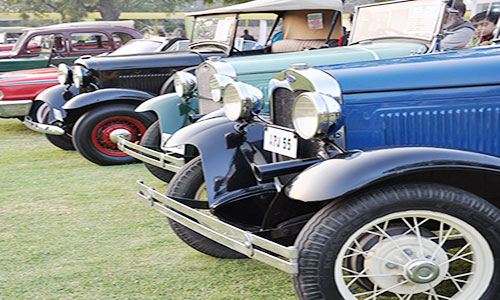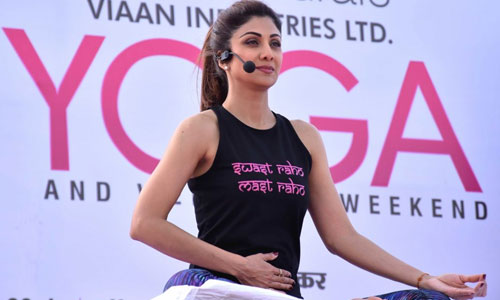Jaipur Polo – The Royal Sport of the City
Jun 22, 2017
Royal Polo Ground
Image Source – Trip Crafter
“Playing polo is like trying to play golf during an earthquake” – Sylvester Stallone
Jaipur is very popular across the globe for its hospitality and colourful life. The city talks a lot about vibrant festivals, sparkling markets, blue potteries and the list continues. The city of Jaipur which was founded back in 1726 by Maharaja Jai Singh II is also famous for sports and strength. Jaipur has an unmatched tradition of playing Polo and this tradition was first introduced by Maharaja Man Singh Ji.
The History
Maharaja Man Singh, during his stay in the courts of Emperor Akbar had taken a very keen interest in the sport of chaugan. When he came back to his princely state, he started playing chaugan. From then this play became a part of tradition for the Maharajas. But later with an advent of the Britishers and all the new rules imposed by them, Maharaj Ram Singh II adopted the major changes in the games and started encouraging indoor and outdoor games (included but not limited to horse riding, horse polo, elephant polo, camel polo, etc.)
Later during the reigns of Maharaja Sawai Madho Singh, the very first polo yard was made measuring 900 yards by 500 yards. It was on this polo yard and the polo court of Mayos College Ajmer that the Maharaja Sawai Man Singh II learnt this game. According to many players and also Maharaja Sawai Man Singh II, the ground was very small so the new field was constructed in 1930.
In India from 1887 to 1901, the Jodhpur Team which had His Highness Sir Pratap Singh, Capt. S. Beatson, Thakur Hari Singh, and Thakur Dhonkal Singh lead the Polo matches. Soon after, the team from Alwar regained its position and in 1902 the team won the "King Edward's Darbar Tournament" in the capital city, Delhi. The play team of Alwar included His Highness of Alwar, Capt. Ricketts, Motilal, and Rao Raja Amar Singh. The Kishangarh Team took the position from 1905 for almost three years.

H H Maharaja Sawai Man Singh II of Jaipur Playing Polo
Image Credits – Rohit Sonkiya
In 1957, Capt. Kishan Singh, Rao Raja Hanut Singh, Capt. Bijay Singh and Maharaja of Jaipur who all were part of Indian Polo Team won laurels for Jaipur and won the world championship.
The Polo in Jaipur would be incomplete without the Rajputana Polo Club, which was formed back in 1901. The club was set with the help of many Rajputana States. After the formation of the state of Rajasthan by the government of India, the club was renamed to Rajasthan Polo Club. With the process of re-naming the club, the headquarters of the club also moved from Mount Abu to Jaipur.

Maharaja Sawai Man Singh II of Jaipur, the Rajpramukh of Rajasthan, one of the World's finest Polo players is pictured on one of his many polo ponies Jaipur circa 1960
Image Credits – Rohit Sonkiya
The Polo Tradition
Maharaja Narendra Singh who was the son – in – law of late Maharaja Sawai Bhawani Singh Ji of Jaipur learnt riding horse at the age of 31. He sat his foot for the very first time on the horse on the occasion of his wedding with Princess Diya Kumari of Jaipur in 1997. In order to keep the tradition of playing polo in the state, he learnt polo and started playing polo at the age of 32.
After this Maharaja Narendra Singh became one of the most acclaimed names in the field of Polo. He took the Royal team of Jaipur Polo to Italy and Germany and playing all around the world. Maharaja Narendra Singh is an FPI ambassador of India currently.

Maharaja Narendra Singh Playing Polo
Image Source – Royal Jaipur Polo Foundation
Polo Events
Two main polo events are organised in the city of Jaipur by the Rajasthan Jaipur Polo Foundation which are as follows:
- Horse Polo
- Elephant Polo
Elephant Polo
Jaipur is the only place which has an unmatchable colourful association with Elephants. No festival or occasion is celebrated in this city without decorating the beautiful skin of elephants. Jaipur is only place where one can come and witness the exclusive sports leagues throughout the year. From horse polo to elephant polo, the city organises many polo leagues in the city.

Elephant Polo in the City of Jaipur
Image Source - www.jonathanangelascott.com
Tournaments
There are many tournaments organised by the Rajasthan Polo Club for both horse polo and elephant polo, the names of the tournaments are listed below –
- SMS Gold Vase Cup
- Rajmata Gayatri Devi Memorial Cup
- H H Maharaja Bhawani Singh Cup
- Rajasthan Polo Club (RPC) CUP
- CDRS POLO CUP
- RINALDI CUP
For more details regarding the tournaments, list of winners please visit http://rajasthanpoloclub.co.in/polo%20tournaments.html
Cups and Awards
To celebrate the victory and to praise the hard work and good play of a person, there are many awards which are given to the players of the polo. Some of these awards are listed below:
- Cartier Cup
- Kota Cup
- Sirmur cup
- Ambassadors Cup
- Jaipur World Polo Championship
- Royal Gems & Art Trophy
- Sawai Man Singh Gold Vase
- Rajasthan Tourism Cup
- Baria Cup
- Mount Shivalik Cup
- Golden Jobilee International Trophy

Image Source – Rajasthan Polo Club
To know more about the polo game – its rules and regulations, Rajasthan Polo Club (formerly known as Rambagh Polo Club), and Jaipur Polo and Horse Riding Club please visit the links given below:
Also Read
You May Also Like












